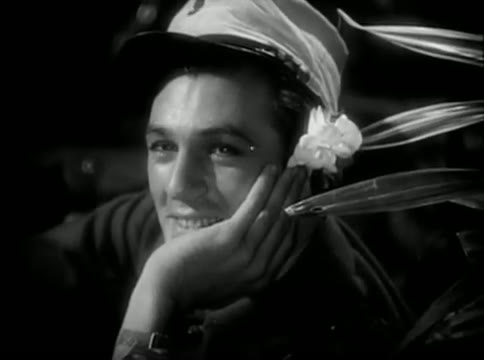Rendező:
Josef von SternbergForgatókönyvíró:
Jules FurthmanZeneszerző:
Karl HajosSzereplők:
Gary Cooper, Marlene Dietrich, Adolphe Menjou, Ullrich Haupt, Eve Southern, Francis McDonald, Paul Porcasi, Harry Schultz, Albert Conti (több)Tartalmak(1)
Amy Jolly, a búgó hangú dizőz egy marokkói kisváros idegenlégiósok által látogatott mulatójának sztárja. Két férfi ostromolja őt szerelmével: egy idősebb, dúsgazdag festő és a daliás idegenlégiós katona, Tom. Amy szívét Tom nyeri el, és a légió továbbindulásakor követi a férfit a sivatagba. Marlene Dietrich első amerikai filmje volt a Marokkó, és a frakkban, mély hangon éneklő színésznő egy csapásra meghódította a tengerentúli közönséget. Dietrich itt még nem annyira a későbbi Sternberg-filmek minden reális vonástól megfosztott „szexuál-fétisét” képviseli, hanem inkább a húszas évek emancipált nőtípusát, aki maga választja meg férfipartnerét. (Örökmozgó)
(több)Videók (1)
Recenziók (2)
Von Sternberg's mannerism has advanced to the next level. He brought Marlene Dietrich back to Hollywood from the Weimar chapter of his career, leaving Emil Jannings to his fate. He found Benno Vigny's book "Amy Jolly" in Berlin, and legend has it that Marlene herself recommended it to him. The story, set on the border between an endless Sahara and a city filled with souls tormented by fate, proved to be the ideal sequel to Heinrich Mann's "The Blue Angel." Marlene only transforms into her new self during the course of the film; at the beginning, still in the harbor, she is still the rough Lola Lola. But it wouldn't be von Sternberg if he didn't break her out of the sticky web of her previous role and make her become a new and better version of herself. While in Berlin she loved the fatherly Jannings and the dashing Albers, Hollywood offered her Gary Cooper from the Foreign Legion and the extravagantly rich beau Adolphe Menjou. It was, after all, very fortunate for Marlene's American career that The Blue Angel was not seen by the local audience until after the success of Morocco because otherwise there might not have been such a wave of desire for a new star. In any case, it is a sheer delight to watch the hidden in the professional Dietrich and von Sternberg partnership. Amy Jolly traverses the environments subconsciously present in all of Dietrich's characters, and there is thus no reason to be distracted. Both songs are great, "Quand l'amour meurt" sung by men in tuxedos and the very decisive and spicy "What Am I Bid for My Apple?" The small Shea butter in the form of a hysterical conductor at Lo Tinto's is a certainty, as are the Aboriginal women literally devouring every part of their legionnaires. It's very clear that Amy Jolly has no desire to return to the material possessions she is reminded of by the photographs from her past, nor to the joys of childhood happiness that she is reminded of by Dietrich's two favorite dolls that wandered with her from film to film; Amy Jolly just needs to listen to her heartbeat. And her heart beats only for the roar of the legionary regiment. She has a choice - she can die inwardly and become her own shadow and marry the comradely Menjou - or she can follow the same goal as a cohort of plain women in the sweat of the sun for miles after their men marching through the endless desert...
()
As banal and ridiculous as the plot is in its frantic effort to find space for Dietrich’s performance, which serves purely as an attraction, Morocco is to an astonishing extent open to a queer reading. Marlene wears men’s clothing, kisses a woman and points out that she still hasn’t found a marriage-worthy man who can satisfy her. Of course, both the first and the second incidents are part of a cabaret performance, while we can interpret the third as simply and chastely meaning that she hasn’t had any luck with finding the right kind of guy. However, the actress’s gestures and face, and especially the titillating way in which Sternberg presents both of these aspects, make the possibility of reading against the grain irresistible. The dialogue also addresses gender differences, constantly treading the line between the two sexes and, though it is free of explicit innuendos, we can easily infer that the director was not a major supporter of the traditional family model. In connection with that, the setting in Morocco, where western female stereotypes were gaining prominence, found its justification. It seems absolutely logical when the protagonist “mannishly” salutes Cooper at the end, takes off her impractical and very feminine shoes and goes into the desert to perform more meaningful service than the life of a proper wife would require from her. The question of whether she is also renouncing her femininity by rejecting the role of decorative accessory and whether society is giving her any choice at all remains hanging in the hot Moroccan air. 75%
()



Hirdetés